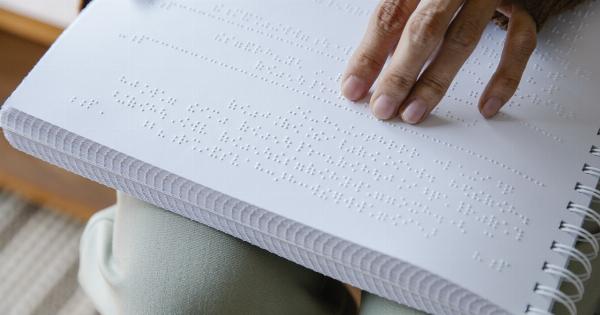Dementia is a debilitating condition that affects millions of people around the world. While there is no cure for dementia, there are ways to manage its symptoms and slow its progression.
One of the key factors that can contribute to dementia is the loss of vision and hearing. In this article, we will explore the relationship between vision, hearing, and dementia, and how they are interconnected.
Hearing Loss and Dementia
Hearing loss is a common issue that affects many people as they age. In fact, it is estimated that over 50% of people over the age of 65 have some level of hearing loss.
While hearing loss can be a frustrating and isolating experience on its own, it can also contribute to a higher risk of dementia.
Studies have shown that there is a clear link between hearing loss and cognitive decline. One study conducted by John Hopkins University found that people with hearing loss were more likely to develop dementia compared to those with normal hearing.
In fact, the more severe the hearing loss, the higher the risk of dementia.
So, how does hearing loss contribute to dementia? There are a few theories. One is that the brain is forced to work harder to process sound, which can cause cognitive fatigue. This, in turn, can lead to a decline in cognitive abilities over time.
Another theory is that hearing loss can lead to social isolation, which can lead to depression, anxiety, and other factors that increase the risk of dementia.
Vision Loss and Dementia
Like hearing loss, vision loss is also a common issue that affects many people as they age. According to the National Eye Institute, over 4 million Americans over the age of 40 have vision impairment or blindness.
Just like hearing loss, vision loss can also contribute to cognitive decline and an increased risk of dementia.
For example, one study found that people with severe vision loss had a three times higher risk of developing dementia compared to those with normal vision.
Another study found that people with age-related macular degeneration (AMD), a common condition that causes vision loss, had a higher risk of developing dementia.
So, how does vision loss contribute to dementia? One theory is that vision loss can lead to social isolation and a lack of stimulation, which can contribute to cognitive decline.
Another theory is that vision loss can lead to a decline in mobility, which can lead to a decrease in physical activity and cognitive stimulation.
The Connection between Hearing and Vision Loss
While hearing and vision loss are separate issues, they are often interconnected. For example, studies have found that people with vision loss are more likely to have hearing problems and vice versa.
One study found that people with hearing loss were twice as likely to have vision impairment compared to those with normal hearing.
One theory is that hearing and vision loss are both caused by damage to the sensory hair cells in the inner ear and retina. This damage can be caused by a variety of factors, including genetics, age, and exposure to loud noises or bright lights.
As a result, people with hearing loss may also be more likely to develop vision problems and vice versa.
Preventing Dementia through Early Detection of Hearing and Vision Problems
While there is no cure for dementia, there are ways to slow its progression and manage its symptoms. One of the most important ways to do this is through early detection of hearing and vision problems.
By detecting and treating these issues early on, it may be possible to prevent or delay the onset of dementia.
If you or a loved one are experiencing hearing or vision problems, it is important to seek out a healthcare professional for evaluation.
This may include a hearing test or vision exam, as well as other medical tests to rule out other underlying health conditions.
In addition, there may be ways to manage hearing and vision loss through lifestyle changes, such as using hearing aids or wearing glasses. In some cases, surgery or other medical interventions may also be necessary.
Conclusion
While there is still much to learn about the relationship between hearing, vision, and dementia, it is clear that they are interconnected.
By understanding the factors that contribute to cognitive decline and taking steps to manage hearing and vision problems early on, it may be possible to prevent or delay the onset of dementia.




























